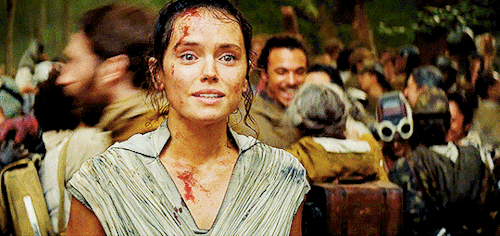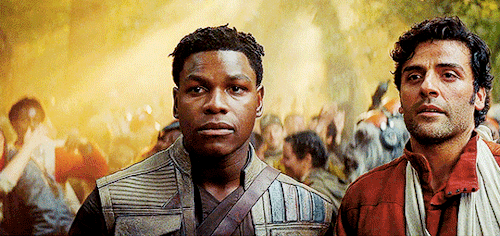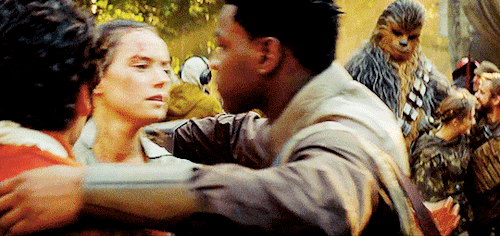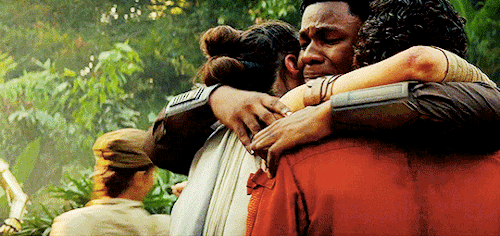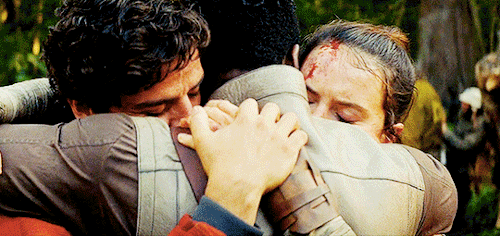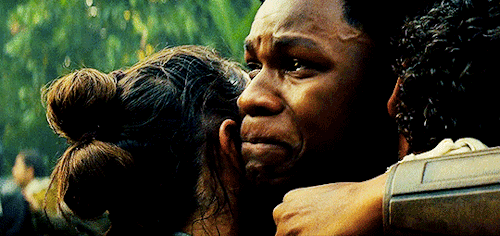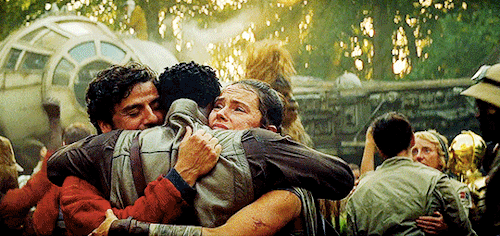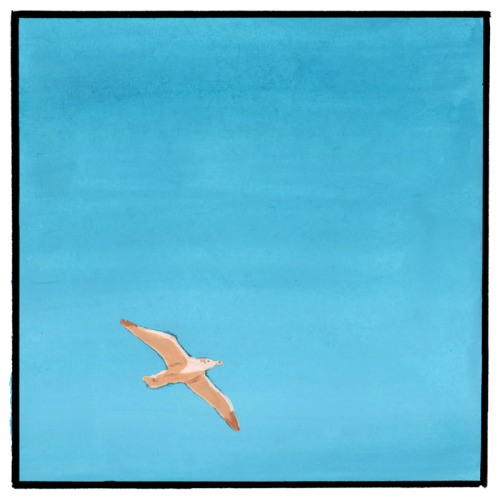Ok. Aspiring/burgeoning Writer Starter Kit:
Pls make a list of books you recommend to aspiring writers<3
Ok. Aspiring/burgeoning writer starter kit:
In writing anything you officially become a writer so that’s step one haha, no need to aspire too much. BUT. I’m going to soapbox for a bit using this ask as an excuse love u kissing u etc. So. This will barely be about books, but sort of the recipe of what I (personally and subjectively) think will help anyone who wants to grow their craft. (I know because I've been writing seriously for 14 years)
The act of writing is the best practice you can get but having a well from which to draw on creatively and skill wise in order to DO that practice is the trickier part. And sometimes we can be found lacking because we’re either NOT refilling that well enough, consciously enough, or only with the same sorts of things so it gets stagnant. This is a long one so I’ll shove it under the cut haha.
The recipe:
Study craft
Broaden horizons
Diversify consumption
Consume with intention
Apply with reference
1) Study craft: this is the easiest to make sense of, right? I want to get good at writing so I read books about writing yada yada. Whatever you’re writing, it’s made up of a lot of moving parts, and you can dedicate time studying EACH PART, but figure out what you have the least experience with, or the most difficulty with, and start there. Also, before I go on to preach about why you shouldn’t solely stake your growth on some dusty old books, here’s some dusty old books I recommend:
The Elements of Style (strunk/white/kalman) (really quick and abbreviated advice, read every bit of this but remember: rules are important to know so you can decide which are worth following and which are in need of breaking for the pursuit of your goals. And nobodies perfect, or editors wouldn’t have a job)
Bird by Bird (Anne Lamott) (excellent work about fostering a process, important for everyone who finds themselves a little lost on how to just. Start)
Wonderbook (Jeff Vandermeer) (I haven’t read this one but knowing Vandermeers work this is on my TBR and I KNOW it’s going to be enlightening)
How to Read Literature like a Professor (Thomas C. Foster) (perfect for those who can see others stories working but unsure how to make their own work, I personally didn’t read much of this one but this will help people to more critically engage with what they’re consuming)
Save the Cat Writes a Novel/Joseph Campbells Hero’s Journey/On Writing and Worldbuilding/etc (all of these are on structure and craft in a concrete sense), I would recommend either choose one OR getting the abbreviated/digestible versions through YouTube because a lot of these can repeat themselves. I’m working on a playlist of writing craft/structure videos that I found helpful, so keep an eye out for that)
So. Studying craft should be a multidisciplinary process. Articles online, videos on niche media, books on craft or copying things from your favorites, looking for yourself in the movies you watch or fiction you read. Punctuation, prose, structure, rhetoric, character, world building, pacing, etc. Unfortunately, no matter how seasoned you become as a writer, you will always be learning new things about the craft itself.
It should be fun and I honestly feel like an enlightened little scientist when I see something that really cracks the open the magic for me (ex: scenes that serve more than one purpose are OF COURSE going to be more engaging that scenes with only one purpose- duh) (of COURSE magic systems should have a cost) (of COURSE the characters cant always win OR always lose)
2) Broaden horizons: consuming fiction and studying it is key to knowing how to reproduce it. We start with the training wheels of imitation before we ride away full speed into truly unique original storytelling. But the most impactful and thought-provoking stories are more than just fiction, so you need to know more than stories. Science, history, art, craft, math, music, cooking, psychology, religion, whatever!
Everyone always parrots “write what you know”, but what you KNOW can expand to influence what you write- so keep learning new things all the time and for fun, because you never know what could help your story. Your knowledge is not limited to experience alone, and research is your best friend. ASOIAF was so loved because George RR Martin loved not only fantasy, but British history. The Folk of the Air series is so loved because Holly Blacks special interest is faeries.
Note: this does not mean the study of OTHER PEOPLES trauma and experiences in an appropriative way, rather, become worldly. Because sure, knowing what a gunshot feels like adds realism, but I don’t care about realism if I don’t care about your characters or world. Science fiction is the best example of this: so many of those stories stick with us generationally because they’re pointing a lens back at humanity, asking big philosophical questions with science, which is something that touches us all.
But it doesn’t even need to be Big and Thematic like that. My dear friend @chaylattes has a project where she’s applied her love of plants to the world building AND plot, and has INVENTED whole plant species that enriched their work with something so exclusively Chay. No one else could write Andromeda Rogue because Chay, with specific interests and knowledge, put that specificity into the story.
3) Diversify consumption: surrounding yourself with more of the same means you’re going to regurgitate the same, derivatively. To be a hater for a moment: I can tell within the first chapter if someone only reads/watches one kind of media (m*rvel, fairy smut, grim dark nonsense, etc), and it’s distracting. When I read that derivative work, I’m not thinking about THEIR story. All I can think of is the people who did it first, and better.
Alternatively, the best work draws on the unexpected. Fantasy work taking notes from horror, science fiction including humanistic romance, romance with elements of mystery. RF Kuangs work feels so smart because she’s literally a PHD candidate who’s reading of academic writing. Cassandra Clares work is so interpersonally messy and hard to look away from because she watches a lot of reality television.
Genre is less a set of cages to lock yourself inside of and more so the sections of a great big fictional playground- and you need to start playing. Rules, again, are guidelines that can be bent for the sake of your stories. I predominantly write scifi/fantasy/horror but some of my favorite stuff is literary fiction, historical nonfiction, thrillers, and poetry.
And if you can’t bring yourself to read different genres, it takes significantly less effort to WATCH different genres. Television and film are stories too, and can absolutely be learned from.
4) Consume with intention: this is easier said than done. I, embarrassingly, admit that I did not have any reading comprehension skills until I was at least 19. I was consuming, but I wasn’t thinking a damn critical thought, just spitting it back out in a way that sounded smart.
Critical thinking skills (I say, on the website that historically lacks such a thing) are a muscle that needs to be exercised just as often as your writing muscle. Reading new work, studying craft, learning new shit- none of it matters if you can’t APPLY it all to a story. One can take a clock apart to learn how exactly it ticks, but it won't tell time like a watch until you put it back together.
The key is asking questions, all of the time about everything. That whole “why the curtains were blue” nonsense comes to mind, but if you want to be a good writer, (edit: a writer that cares about whether or not their work is vapid imitation of better work) learning to ask WHY the curtains are blue really does matters.
Ask why in ALL stories you consume, including your own. Why do Ghibli films make me feel calm? (Motifs of undisturbed nature, low stakes plots and quiet scenes of reprieve between action, characters that care about one another and aren’t afraid to show it) Why do I fly through a Gillian Flynn novel but take 8,000 years to read other books? (Concise descriptions, realistic but evocative premise, witty voice, contained and fast paced plot, an abundance of questions driving the mystery leading up to a satisfying crash of answers at the end) Why were the curtains blue, the coffee cup chipped, and the lipstick stain on the rim red instead of purple or pink? And why did the colors matter at all when the scene is about a father at a kitchen table? (You tell me!) Answers may vary.
You can put the work into learning the answer at the source (ie: listening to authors talk about their own work), or through the external interpretations of a critic (proceed with caution here), sure. These are even good when learning HOW to think critically if you don’t even know where to start. But your growth as a writer depends on your ability to answer your OWN questions.
(Why do I feel tense in this scene? Is it because the character says they’re sweating and struggling to breathe? Is it because I’ve been told the monsters close? Is it because the sentences are getting shorter and the author keeps repeating descriptions of that monsters massive bloody teeth coming closer? Or is it because I know the gun in her hands has no bullets because another character already tried what she’s about to try?)
(Why do I feel sad in this scene? Is it because the characters mom just died? Is it because the character can’t even verbalize that sadness to others? Is it because none of the other characters seem to care enough to ask? Is it because of the wilted flowers in the corner? Or is it because there are daisies in the bouquet, and those were the moms favorite?)
I can nod and smile at 1000 opinions about “why X did Y and the end of Z” or “why X is Y and not Z” but how I felt when I consume something, how I was affected and how it made ME PERSONALLY answer my critical questions, that’s what’s important. That’s how we manufacture gay subtext in everything, because sometimes gay is a feeling as opposed to a fact.
Also, if those subjective answers are inconsistent among readers/viewers, the writer likely had their own intentions a little muddled. So, and I know I’m getting tangential but stay with me: romance. You know how you’re supposed to feel happy or convinced that the people falling in love are like, in love? And want to put yourself in that position or whatever? I CANNOT consume most romance media because it all comes off as categorically terrifying to me. I ask myself why the characters are doing what they do, reacting the way they react, saying way they say, and none of it feels romantic. I want to file a restraining order, and that’s the failing of the author, who did not make enough conscious choices in their work and accidentally created horror while writing their color by numbers trope slop of a “romance” novel.
5) Apply with reference: is like taking all your ingredients and finally cooking. You want people to notice and respect when you add certain literary devices, descriptions, character choices, but not to the detriment of your work. Shows like stranger things are popular but divisive because their intertextuality and reliance on nostalgia bolster an otherwise unoriginal idea. They weren’t trying to reinvent the wheel, they were writing a love letter to Stephen Spielberg, and are riding that wave into the ground. But the fairy dick renaissance doesn’t feel nearly as palatable as season one of stranger things did because a lot of times they aren’t using the ingredients in their own way, rather, following the recipe to a T and selling it as new. Food really is the perfect metaphor and sorry in advance because I’m really going to run with it here lol.
When I eat a meal, first of all I know I'm eating food, so don't try and trick me into thinking otherwise or I'll only get annoyed. I want to be able to taste all of what’s in front of me, spice, salt, sweet, bitter, etc and know what what you said you've fed me is really actually truly what I've eaten. One ingredient, or writing choice, shouldn’t overpower another, or surprise me so much I can’t take another bite. I shouldn’t try something you call “sauced and baked yeast patty garnished with fermented milk and smoked meat” and think “this shits pizza” because you didn’t even try to jazz it up more than what the instructions on the digiorno box said. I also shouldn’t bite into something you call a pizza and only taste bread because you really like bread and forgot that a pizza is more than just bread.
But inversely, avoiding all ingredients gets you weird, nary inedible shit like charred milk reduction with lamb mist or whatever. Show me you have knowledge in your genre by referencing it AND remixing it, show me that you studied craft by foreshadowing properly or pacing well, show me you’re more than an AI writerbot by deepening your work with your unique and human influence, show me you read broadly by adding surprising ingredients, and show me that you mean every word you write because you made the curtains blue instead of yellow, and topped your pizza with pepperoni instead of pineapple.
Congrats on making it all the way through my rambling, hope I made sense and that this helped!
More Posts from Lune-versatile and Others
How do you turn a outline into chapters? Like how many chapters does a part of an outline turn into?
Turning an Outline Into Chapters
There's no method or template for how an outline translates into chapters. Instead, it's about breaking down the story into its natural parts.
Stories can be broken down into scenes. A scene is a mini-story that revolves around an important plot point in your story, or in other words a moment in your story that affects a main character's, their path, or the direction of the story. This moment could be:
-- a particular course of action taken by a main character -- an important conversation involving a main character -- an important event involving a main character -- a series of small related moments occurring in the same short period of time, the same place, involving the same character/s, revolving around a particular subject or theme, or from a particular character's POV.
Most scenes are (sometimes loosely) structured similarly to a story, having a small bit of introduction, an inciting incident, rising action, a dilemma, a climax, and a denouement. Like story in general, scenes should have a balance of exposition (explaining things), action (things happening), and dialogue (conversation).
Scenes end when the mini-story the scene is telling ends. Typically, this ending will also naturally shift toward a new plot point that takes place in a different time and/or different place, potentially with different characters.
Go through your summary and find the plot points and moments around which you can build your scenes, and divide them out into their scenes.
Chapters can be a single scene or a group of related scenes. If you have several scenes that take place during a similar time period (in the weeks before and during Halloween, for example), in a similar setting (the characters have traveled to Las Vegas for the week), or involving the same plot point (a heist that plays out over three scenes), these can be grouped together into one chapter. Typically, chapters are made up of one to three scenes.
Once you have your outline broken down into scenes, you can group the scenes into chapters.
Happy writing!
•••••••••••••••••••••••••••••••••
I’ve been writing seriously for over 30 years and love to share what I’ve learned. Have a writing question? My inbox is always open!
Learn more about WQA
Visit my Master List of Top Posts
Go to ko-fi.com/wqa to buy me coffee or see my commissions
I probably shouldn't admit this about something I wrote, but I accidentally re-read Carnivore all the time. I'll open it to look something up to reference in Gripped Tight and then start reading like "oh shit, this was good. oh dang i did that so true of me. oh wow i'd forgotten that part i love that jeez!" lol
You bored, or feeling artsy but don’t have any inspiration...? *updated!*
Do you need to distract yourself? Or are you simply bored? Here are some great websites to make the time pass.
create pixel art
Awesome photo editor and art program, all free…!
Totally free transparent textures
make a cute chibi
draw some cool generative art
be a graffiti creator
create a picassohead (you don’t need to be a picasso to do so)
paint online
another awsome site to create pixel art on
and another one
create your own mandala
or color one
create an avatar
or you can try creating your own superhero
here you can interact with organisms in different environments to see how to music changes
here’s a website that translates the time into hexidecimal colours,
Here is a website where you can travel along a 3D line into the infinite unkown
here is a website where you can listen to rain with or without music
Need a model in a certain pose for drawing? here
Want to build your own planet
here is a website where you can create your own galaxies
make your own pattern (very useful if you need a new background)
create next hit comic
make a city which looks like something from 90′s games
draw a mandala like design
jig saw puzzles
more jig saw puzzles to solve
create a stunning HTML5 animation - no coding!
make a movie
create and dress up dolls
play a piano
you can also play a guitar
create sounds
another sound creator
create a logo
design your dream home
sketch rooms
explore fashion trends and create your own sets
build a website
try this app for building a website
Or maybe start learning how to code!
design your own t-shirt or a beanie or sweatpants and order them
design your own phone case
pretend to be a graphic designer with this cool online tool
Make your own Glitch art
Here’s another glitch art maker
And another!
Holy hell, here’s a third!
make an image look like it was created by a commodore 64
freaking cool text generator!
Easy to use word processor
Make up really cool patterns or run your photos through it :)
Write an essay on anything with no hassle
Wanna see how something you write would look like if it was on JacksFilms YGS((Your Grammar Sucks videos on YouTube))?
Make pictures out of text
ASCII word generator
Need an idea for some fanart-here :D
Still haven’t found something that would float your boat? Try these:
watch a documentary
learn to code
do something yourself
workout with the help of this great youtube channels
learn things
play pokemon or zelda or other awesome old school games
waste your time on miniclip
play games at additing games
or try games at agame
calm your thoughts
the quiet place
it will be okay
vent or listen to someone
pour out your soul
explore the sky
look at art from around the world
virtually visit museum of iraq
explore world with arounder
create a music playlist
list through rare books
scroll useful science website
create sand art
brain games
try out tastekid and discover new favorite band or movie or book
interactive 3D anatomy
random street view
post a secret
create a family tree
find our what’s the difference between x and y
help scientists and become volunteer researcher
create your own font
read a classic short story
In the mood to read, but not sure exactly what book to go for?
scribble on maps
listen to letters
play with acrobots
listen to podcasts
make a bucket list
Ever want to see the most truly useless websites in creation?
Prank a friend with this blue screen of death!
Zone out watching the colors drip down
Maybe none of these peeked your interest-maybe you’ve been wanting to create an o.c, but never really knew how to start-or you just enjoy making O.C’s….
This masterlist is to help you in making your own OCs….it can also apply to developing RP characters i suppose! (´ヮ`)!
How to Write Better OCs:
basic tips on how to make your oc even better
tragic backstory? learn how to write one/make yours great
writing specific characters
a wordier, great guide on how to develop your character
kick out those vague descriptions and make them AWESOME
Character Development:
how to actually make an OC
Q&A (to develop characters)
more Q&As
giving your character a backstory
how to write an attractive character
Need an Appearance idea?
Humanoid generator? check
Here’s another one
and maybe if you didn’t like those this’ll work
Need Monsterpeople?
Well, then here ya’ go
Maybe you need Cats?
Diversity
adding more racial diversity
avoiding tokenism, AKA, how to add diversity to your cast not just because you “need” it
writing sexuality and gender expression (doesnt include non binary, if you have a good ref to that, please add on!)
masterpost on writing more diversity into your story
cultures of the world
guides to drawing different ethnicities (not just a great art reference, but also really helpful in appearance descriptions!)
Mary Sue/Gary Stu
Test to see if your character is a Sue
Explains subdivisions of Sues/Stus
Powerful Characters Don’t Have to Be Sues
Villains
villain generator
need an evil sounding name for your evil character? bam
villain archetypes
what’s your villain’s motive for being a villain?
Relationships
character perceptions (What your character thinks of themselves and what others think of them)
how to write strong relationships between two characters
8 ways to write better characters and develop their relationships with others
OCxLove Interest Handbook
develop your couple with good ol’ Q&A!
how to write realistic relationships
how to write relatives for your characters (this is more OC related to a canon character, but will help in writing family members in general)
ARCHETYPES
12 common archetypes
8 archetypes for male/female characters
female archetypes (goes pretty indepth from two main categories)
a list of archetypes
NAMES
how to name your character
random name generator
most common surnames
surnames by ethnicity
APPEARANCE
tips for better design
basic appearance generator
pinterest board for character design (includes NSFW and images of skeletons/exposed muscle (?) so tread carefully!)
clothing ref masterpost
Clothing generator
Another clothing generator
More clothing generator
Aaaand even more
Steam punk clothing
Char Style preference
Dress Generator
DETAILS
give your character better powers
a list of professions
proactive vs reactive characters
positive and negative traits
interest generator
skills generator
motivation generator
123 ideas for character flaws
list of phobias
Oh shit someone died
Backgrounds and stuff? yep
Quirks
Personality. you need that shit
Need something fandom related?
City generator hell yeah
location? got ya
World-building?
make your own god damn laws
Landscape.
Need Item names?
Fantasy/sci-fi/etc. medicine names
Stuff to make things more interesting.Weapons, clothes, treasures… whatever your characters need.
Item & Artifact Generators
Other stuffs!
Genre, Plot, & Story Prompt Generators
How did your characters meet?
Fanfic plots. you bet your ass.
writing resources masterlist v2
happy nano lol here’s a masterlist of writing resources. over 300 links and counting.
so. what’s in here? well:
where to write
ambient sound + visual ambience
moodboard making/ where to source images
character development
creating a look for your character
prompt, poem, and song generators
map making
medical accuracy in writing
first hand accounts of illnesses/disorders
law and crime writing
weapons/armor
folklore/mythology
esl resources
and way more!
(if any links are broken or i’ve credited incorrectly, please let me know! thank y’all for reading!)
Afficher davantage
Are you still stuck for ideas for National Novel Writing Month? Or are you working on a novel at a more leisurely pace? Here are 102 resources on Character, Point of View, Dialogue, Plot, Conflict, Structure, Outlining, Setting, and World Building, plus some links to generate Ideas and Inspiration.
CHARACTER, POINT OF VIEW, DIALOGUE
10 Days of Character Building
Name Generators
Name Playground
The Universal Mary Sue Litmus Test
Priming the idea pump (A character checklist shamlessly lifted from acting)
How to Create a Character
Seven Common Character Types
Handling a Cast of Thousands – Part I: Getting to Know Your Characters
It’s Not What They Say . . .
Establishing the Right Point of View: How to Avoid “Stepping Out of Character”
How to Start Writing in the Third Person
Web Resources for Developing Characters
What are the Sixteen Master Archetypes?
Character: A compilation of guidance from classical and contemporary experts on creating great dramatic characters
Building Fictional Characters
Fiction Writer’s Character Chart
Character Building Workshop
Tips for Characterization
Fiction Writer’s Character Chart
Villains are People, Too, But . . .
Top 10 Tips for Writing Dialogue
Speaking of Dialogue
Dialogue Tips
Advantages, Disadvantages and Skills (character traits)
How to Write a Character Bible
Character Development Exercises
All Your Characters Sounds the Same — And They’re Not a Hivemind!
Medieval Names Archive
Sympathy Without Saintliness
Writing the Other: Bridging Cultural Difference for Successful Fiction
Family Echo (family tree website)
Interviewing Characters: Follow the Energy
100 Character Development Questions for Writers
Behind the Name
Lineage Chart Layout Generator
PLOT, CONFLICT, STRUCTURE, OUTLINE
How to Write a Novel: The Snowflake Method
Effectively Outlining Your Plot
Conflict and Character within Story Structure
Outlining Your Plot
Ideas, Plots & Using the Premise Sheets
How to Write a Novel
Creating Conflict and Sustaining Suspense
Plunge Right In . . . Into Your Story, That Is!
Fiction Writing Tips: Story Grid
Tips for Creating a Compelling Plot
Writer’s “Cheat Sheets”
The Thirty-six (plus one) Dramatic Situations
The Evil Overlord Devises a Plot: Excerpt from Stupid Plotting Tricks
Conflict Test
What is Conflict?
Monomyth
The Hero’s Journey: Summary of the Steps
Outline Your Novel in Thirty Minutes
Plotting Without Fears
Novel Outlining 101
Writing the Perfect Scene
Fight Scenes 101
Basic Plots in Literature
One-Page Plotting
The Great Swampy Middle
SETTING, WORLD BUILDING
Magical World Builder’s Guide
I Love the End of the World
World Building 101
The Art of Description: Eight Tips to Help You Bring Your Settings to Life
Creating the Perfect Setting – Part I
Creating a Believable World
An Impatient Writer’s Approach to Worldbuilding
Fantasy Worldbuilding Questions
Setting
Character and Setting Interactions
Creating Fantasy and Science Fiction Worlds
Creating Fantasy Worlds
Questions About Worldbuilding
Maps Workshop — Developing the Fictional World Through Mapping
World Builder Projects
IDEAS, INSPIRATION
Quick Story Idea Generator
Solve Your Problems Simply by Saying Them Out Loud
Busting Your Writing Rut
Writing Inspiration, or Sex on a Bicycle
Creative Acceleration: 11 Tips to Engineer a Productive Flow
The Seven Major Beginner Mistakes
Complete Your First Book with these 9 Simple Writing Habits
Free Association, Active Imagination, Twilight Imaging
Random Book Title Generator
Finishing Your Novel
Story Starters and Idea Generators
REVISION
How to Rewrite
One-Pass Manuscript Revision: From First Draft to Last in One Cycle
Editing Recipe
Cliche Finder
Revising Your Novel: Read What You’ve Written
Writing 101: So You Want to Write a Novel Part 3: Revising a Novel
TOOLS and SOFTWARE
My Writing Nook (online text editor; free)
Bubbl.us (online mind map application; free)
Freemind (mind map application; free; Windows, Mac, Linux, portable)
XMind (mind map application; free; Windows, Mac, Linux, portable)
Liquid Story Binder (novel organization and writing software; free trial, $45.95; Windows, portable)
Scrivener (novel organization and writing software; free trial, $39.95; Mac)
SuperNotecard (novel organization and writing software; free trial, $29; Windows, Mac, Linux, portable)
yWriter (novel organization and writing software; free; Windows, Linux, portable)
JDarkRoom (minimalist text editor; free; Windows, Mac, Linux, portable)
AutoRealm (map creation software; free; Windows, Linux with Wine)
A Few Tips On Writing Chapters
Give each chapter a descriptive title.
Especially if you find yourself at sea when deciding how exactly to chop your story into pieces. Even if you don’t want to use chapter titles in your final draft, they’re of enormous use when you’re still figuring out exactly what the shape of your story is. By giving your chapter a descriptive title, you’re giving your chapter a focus and a particular story for your chapter to tell.
Make sure each chapter has its own self contained narrative arc.
This is not to say that every novel must be episodic, but that each section should have its own beginning, middle, and end. It should have set up, build up, and resolution. It should ask a question an implicit question at the beginning and provide a slightly more explicit answer at the end.
Example: one chapter in my book is just 500 words. Two new characters drive into town, get out of a car, knock on a door, and they say their names. The beginning is the introduction of the mystery of these characters. It’s the question “who are these people?” As they drive, you see them and where they are going, which builds towards the answer. As a resolution, you get their names.
You wouldn’t call this a “short story” by any means, but it does have a firm beginning, middle, end. It is a contained unit.
A chapter break can–and sometimes should–come in the middle of a scene.
Twists and cliffhangers can appear at the end of novels, so it would be silly to say you couldn’t end a chapter that way, too. Cliffhangers and twists are usually both a result of other plot points, and the cause of a new problem. Narratively, they function both as the ending of one thing and the beginning of another, so they make for great chapter breaks. Separating the scene at a cliffhanger is often better/cleaner than lumping the entire scene into one chapter.
Example: Alex is warned to stay away from a dangerous cliff. Alex gets adventurous and wanders toward cliff. Alex falls off of cliff. Beginning. Middle. End.
Alex is actually hanging from cliff! Alex figures out a way to get back to solid ground, struggles. Alex makes it back to solid ground. Beginning. Middle. End.
You want your readers to “just one more chapter!” their way through your book. Stuffing moments of high tension into the middle of chapters that resolve neatly won’t keep them turning pages.
Always end your chapters on a point of intrigue.
Using points of tension to bookend chapters is important because chapter endings are usually where readers put a book down during a reading session. They’re very naturally places to close the cover and walk away.
As a writer, you don’t want this. You absolutely don’t want to give your reader great places to put the book down, because you need them to pick the book up again as soon as possible. Not the next day, or the next week, (or never), but while they have a spare minute during their commute, or during their lunch break, or under their desk in class.
You want to encourage this by taking that perfectly natural endpoint, that place they expect to be able to put the book down, and forcing them to take even a tiny peak at the next chapter.
This doesn’t mean ending every chapter on a verifiable cliffhanger, but there has to be something. A character can solve a mystery. A new character can appear. There can be a moment of irony. A new idea. Just so long as it’s something that will make the reader think “I need to know what happens next.”
Dawn do u have any advice for people starting skz writing blogs?
Oh! I definitely do! I’ll put them under the cut uwu <3 These are all tips I wish I knew, ranging from garnering readers to how to deal with other happenings. <3
!!!; this is a fairly long post! also, I am no way qualified enough to be giving advice, these are just things I've learnt in my term of experience.
#1: Write what you want to see on this platform, basically build a niche for yourself.
So this is a pretty obvious and often said point, but write what you want to, and when you want to. If it's domestic AUs that you're the most comfortable with, write that! Of course, you can dabble into new genres to discover what your other interests are, but don't for yourself to write something just because it's a popular topic. When people find a fic of yours that they like, they'll most likely go to your blog expecting the same kind of stuff. <3
#2: Develop your own distinct style, be it in your blog, in your writing in your layout, etc.
Make your blog's aesthetic/layout as distinct as possible, so that it's identifiable. This just gives a sense of uniqueness to your blog, which oft attracts readers. Ofc by this, I don't mean you need to be a master at photoshop/editing to create amazing aesthetics — you can just use simple elements and blend them together in a way that stands out well. Personally, if I'm to be honest, aesthetics, general neatness means a lot to me. I usually wish for a blog to be de-cluttered have a good and efficient way of navigation without having to search through or dig in a lot myself.
#3: Use tags! On all of your posts.
Like I said in the previous section, I wish for a new blog I'm going through to have a good and efficient way of navigation. Use tags, not just on your writing, but all your posts. This can facilitate easier viewing of same posts grouped under one tag, plus if someone prefers to not view something in particular, they can choose not to by blacklisting. Untagged posts are honestly a huge pet peeve of mine dihfuyrharieuhr. That being said, use the correct tags on your post! This post has a good note on how to garner readers as well as tagging.
#5: It takes time for you to gain attention for your work, and it takes time for your writing style to develop into something unique.
This is honestly something I wish I knew when I started writing. I'd see all these blogs get so much interaction and anons and notes on their writing, and while I was happy for them, it made me feel insecure that maybe I wasn't as good enough for them...? fast forward to six months later, I had nearly the same amount of interaction as they did. So it's really all about working towards your way to create a distinct writing style, all whilst improving yourself. Don't be demotivated when you don't get interaction at first, because it takes time for your style to be recognizable and it takes a while to improve, so as and when you write, you'll get better and better! <3
#6: Interact with other writers' writings!
This is also something I wish I knew. interacting with other writers is a way to make new friends, plus give your blog some exposure. of course, that's different from clearly exploiting a blog's status for follows. Make friends with other writers, and reblog their writings (ofc, only if you read them and you liked them, don't force yourself to)! 99% of the time, whenever someone leaves feedback on my writing, I check their blog, and if their writing is something I like, then I follow them! So yeah, this site literally thrives off interactivity, so don't be afraid to interact with writers!
#7: When you're posting your writings, make them clean to look. They should be pleasant to the eye.
What I mean by this is that your layout should not be too compact, hard to read, or straight up painful to look at. Don't use those 𝓈𝓌𝒾𝓇𝓁𝓎 ass fonts, because half the time, they won't render on most devices, and they're often horrible to look at + impossible to read for someone who uses a screen reader. Don't use tinie font on your posts for the same reason.
And! Banners! They're a great addition to a fic, and make it attractive to look. I can't tell you how much a good, well made banner can affect my view on whether I want to read the fic or not. However, i have some negative points about it too. Don't make banners if you don't know how to, only for the sake of making them. This doesn't mean you shouldn't experiment, hell, my first banners were total crap. It of course takes time to learn editing (provided you have an interest in it), but my point is: a banner is used to attract attention to your fic, yet if you have a bad-looking banner, bad layout, bad presentation, (coming from me) I tend to not want to read the fic.
I think a lot of people don't tell new writers that layouts are very important. Most of the stuff is covered in that post I liked, but having a distinct, unique, neat (emphasis on neat — you don't need fancy banners and fonts, just make sure it's not painful to look at) layout really helps. Don't use overly contrasting color combos like this and make sure it is neat, and pleasant to look at. You want to attract attention to your fic, not make it hard to read. While banners and aesthetic photos are not very important, a neat lay!!!!!!out is very essential, to increase your reader count and actually ensure that your fic is readable.
#8: Just know that the number of notes your fic gets is all in your luck.
Just because you get less notes doesn't mean you're any less of a writer! Hell, I know so many phenomenal writers that deserve so many more notes. Your note count can depend on several factors, including (but not limited to) your posts not showing up in the tags, the genre you've written is not a very popular genre (that doesn't mean you shouldn't write it! There will be biases towards genres in the fandom, but write what you want), or the fact that this site is often treated like instagram. So if you get less notes on a fic, don't be demotivated! You have every right to ask for more interaction on your fics from your followers, but don't let it think you're any less of a writer.
That's it! If you have any specific doubts, feel free to send another ask, or a dm! <3
-
 gooseberrydozen liked this · 1 year ago
gooseberrydozen liked this · 1 year ago -
 thirtyhearts liked this · 1 year ago
thirtyhearts liked this · 1 year ago -
 nervousantic liked this · 1 year ago
nervousantic liked this · 1 year ago -
 thisishaskins liked this · 1 year ago
thisishaskins liked this · 1 year ago -
 svankmajerbaby liked this · 1 year ago
svankmajerbaby liked this · 1 year ago -
 prometheuswounds reblogged this · 1 year ago
prometheuswounds reblogged this · 1 year ago -
 prometheuswounds liked this · 1 year ago
prometheuswounds liked this · 1 year ago -
 agendrangel liked this · 1 year ago
agendrangel liked this · 1 year ago -
 born-to-lose liked this · 1 year ago
born-to-lose liked this · 1 year ago -
 jenniferbodies liked this · 1 year ago
jenniferbodies liked this · 1 year ago -
 stdogboy liked this · 1 year ago
stdogboy liked this · 1 year ago -
 corpsepng reblogged this · 1 year ago
corpsepng reblogged this · 1 year ago -
 acidwomn reblogged this · 1 year ago
acidwomn reblogged this · 1 year ago -
 lamiascales liked this · 1 year ago
lamiascales liked this · 1 year ago -
 arsenalgbt liked this · 1 year ago
arsenalgbt liked this · 1 year ago -
 aethesfaelibrarae liked this · 1 year ago
aethesfaelibrarae liked this · 1 year ago -
 harychibir liked this · 1 year ago
harychibir liked this · 1 year ago -
 fooxie reblogged this · 1 year ago
fooxie reblogged this · 1 year ago -
 fiddlededeejester liked this · 1 year ago
fiddlededeejester liked this · 1 year ago -
 seyree liked this · 1 year ago
seyree liked this · 1 year ago -
 i-will-write-tomorrow liked this · 1 year ago
i-will-write-tomorrow liked this · 1 year ago -
 oa-trance liked this · 1 year ago
oa-trance liked this · 1 year ago -
 4th-mcelroy-brother-dougie liked this · 1 year ago
4th-mcelroy-brother-dougie liked this · 1 year ago -
 stormblessed-crow liked this · 1 year ago
stormblessed-crow liked this · 1 year ago -
 shazzyv liked this · 1 year ago
shazzyv liked this · 1 year ago -
 hiflume liked this · 1 year ago
hiflume liked this · 1 year ago -
 casualbluebirdmentality reblogged this · 1 year ago
casualbluebirdmentality reblogged this · 1 year ago -
 casualbluebirdmentality-main liked this · 1 year ago
casualbluebirdmentality-main liked this · 1 year ago -
 quoxz reblogged this · 1 year ago
quoxz reblogged this · 1 year ago -
 quoxz liked this · 1 year ago
quoxz liked this · 1 year ago -
 snorfsnout liked this · 1 year ago
snorfsnout liked this · 1 year ago -
 lune-versatile reblogged this · 1 year ago
lune-versatile reblogged this · 1 year ago -
 lune-versatile liked this · 1 year ago
lune-versatile liked this · 1 year ago -
 kaepop-trash liked this · 1 year ago
kaepop-trash liked this · 1 year ago -
 baeglettes liked this · 1 year ago
baeglettes liked this · 1 year ago -
 sneebl reblogged this · 1 year ago
sneebl reblogged this · 1 year ago -
 sneebl liked this · 1 year ago
sneebl liked this · 1 year ago -
 unaccountablity liked this · 1 year ago
unaccountablity liked this · 1 year ago -
 asushunamir2051 reblogged this · 1 year ago
asushunamir2051 reblogged this · 1 year ago -
 cazzriee liked this · 1 year ago
cazzriee liked this · 1 year ago -
 jellypickle liked this · 1 year ago
jellypickle liked this · 1 year ago -
 blogalreadyexistsjjbcfgykorscvjk liked this · 1 year ago
blogalreadyexistsjjbcfgykorscvjk liked this · 1 year ago -
 thelovelymadone reblogged this · 1 year ago
thelovelymadone reblogged this · 1 year ago -
 suzerainoflegend reblogged this · 1 year ago
suzerainoflegend reblogged this · 1 year ago -
 suzerainoflegend liked this · 1 year ago
suzerainoflegend liked this · 1 year ago -
 toroidal-spider liked this · 1 year ago
toroidal-spider liked this · 1 year ago

